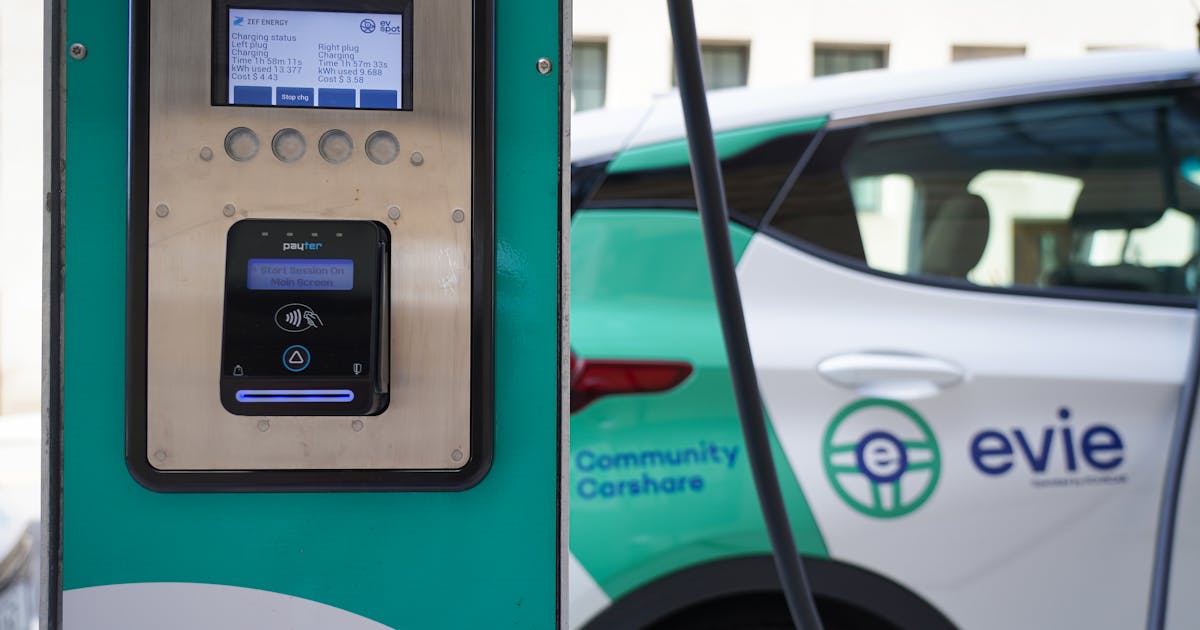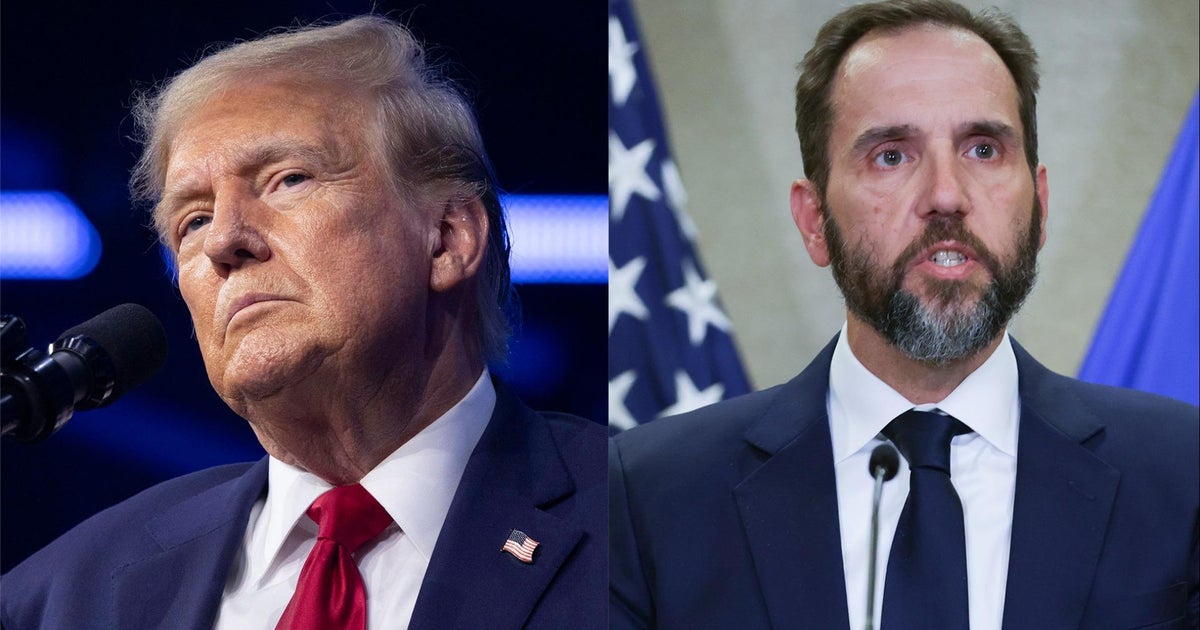Star Tribune
Electric-car-sharing program owned by Minneapolis and St. Paul hits major milestone

Evie, the Twin Cities car-sharing program featuring all-electric vehicles, hit a major milestone last month when the service recorded its 150,000th trip.
The first cars hit the streets of St. Paul and Minneapolis in February 2022. After a slow start, usage has accelerated rapidly. In the past three months, members collectively made nearly 50,000 trips, including 14,000 in October, which set a monthly record.
“It’s exciting,” said Will Schroeer with East Metro Strong, a nonprofit that advocates for better transportation options on the east side of the Twin Cities. “Word is getting out. People are finding the service is useful.”
Evie is the nation’s first 100% renewably powered and municipally owned car-share service in the country. Minneapolis and St. Paul together own Evie, which is operated by Hourcar and came into existence with funding partners that included the Met Council, the U.S. Department of Energy and private philanthropy.
Evie has grown to a fleet of 170 Nissan Leaf and Chevy Volt cars and a network of charging stations across a 35-square-mile area stretching from neighborhoods in north Minneapolis to downtown and east through St. Paul’s Midway area and areas adjacent to the State Capitol.
The service area is expected to grow even larger with cars to be available at four stations along the Gold Line, the new bus rapid transit line that starting in 2025 will run from downtown St. Paul to the suburbs of Maplewood, Oakdale and Woodbury.
With fees charged by the minute, hour or day, Evie is filling a transportation void for those who don’t or can’t afford to own a car, but need to get to places not served by traditional public transportation or need to travel when buses and trains are not running, Schroeer said.
Nearly 40% of trips have been taken by people of color and those who qualify as low-income. They have used the cars to get to jobs and medical appointments and make runs to Target.
“The beauty is it can meet a variety of needs,” Schroeer said. “We are serving people who really need this service.”
Cars can be picked up at and returned to a legal parking spot anywhere within the service zone. But vehicles can be driven anywhere, which has allowed some users to visit state parks and go camping near Duluth, Schroeer said.
The electric-car-sharing program fits with both cities’ efforts to fight against climate change. Since Evie’s inception, users have logged more than 1.5 million zero-emission miles, officials said.
“By embracing electric vehicles, Minneapolis is improving mobility options for residents, reducing emissions, and leading the way toward a greener, smarter, and more sustainable future for generations to come,” Minneapolis Mayor Jacob Frey said in a statement.
There were about 41,400 electric vehicles on Minnesota roads as of July, according to MnDOT.
“Don’t be shy about trying them,” Schroeer said. “People find the cars are easy to drive and figure out.”
Star Tribune
Oat mafia emerges in Minnesota’s Driftless Region. Can they get any help?

ZUMBRO RIVER VALLEY, MINN. – From his combine on an October afternoon, harvesting dried-out soybeans the color of dust, Martin Larsen points to a hillside where his ancestors from Scandinavia homesteaded.
History might be happening again on the Larsen farm.
Last year, on this plot of land along the Zumbro River, the 43-year-old farmer from Byron grew oats. Not oats for hogs or cows. But oats for humans. He hauled the oats to a miller across the state line into Iowa. A previous year, Larsen even had a contract with Oatly, the trendy Swedish maker of milk alternatives.
Something of an oat renaissance has been occurring down in the fields west of the Mississippi River. During winters, Larsen — through his job with the Olmsted County Soil and Water Conservation District — evangelized to fellow farmers on the humble small grain.
His friends and neighbors were listening. As of this fall, over 60 farmers, covering 6,000 acres across southern Minnesota, have joined Larsen’s informal coalition to grow food-grade oats. They call themselves the “oat mafia.”
Star of breakfast food, children’s books and, increasingly, those nondairy lattes, oats are easier on the environment, requiring less nitrogen than corn, which means a lot in the karst-rich hill country of southeastern Minnesota, where the U.S. Environmental Protection Agency has tasked state officials with cleaning up drinking water.
“Nitrates come from this,” said Larsen, driving his gray Gleaner combine on a patch of soybeans beneath a hillock just beyond the suburban sprawl of northwest Rochester on a recent warm Friday afternoon. “I’m not going to beat around the bush anymore. That’s what the data says.”
But as the oat mafia looks to the future, they’re struggling with a basic marketing question: Who will actually buy these oats they’re growing?
Star Tribune
Minnesotans reflect on Biden’s apology

Lt. Gov. Peggy Flanagan and her daughter were among the throngs Friday as President Joe Biden delivered the apology that many Indigenous Americans thought would never come.
“I think he really said the things that people have been waiting to hear for generations, acknowledged just the horror and trauma of literally having our children stolen from our communities,” said Flanagan, a member of the White Earth Band of Ojibwe. “It’s a powerful first step towards healing.”
Hundreds of boarding schools operated in the 19th and 20th centuries, separating Indigenous children from their families and forcing them to assimilate to European ways. Many children were abused, and at least 973 died, according to a report from the U.S. Department of the Interior.
Other Minnesotans reacted similarly to Flanagan, saying they welcomed the apology but that additional action is needed to help Indigenous people move forward.
Anton Treuer, a professor of Ojibwe at Bemidji State University, wrote in a newsletter that the apology was “a welcome first step on the journey to healing.”
“There is no way to truly right historical injustices for the children buried at Carlisle, Haskell, and other schools, but these words set a new tone for the country and will help heal the anguish so many Natives have carried for so long,” Treuer wrote. “It gives me hope that we can come together to reconcile and heal our troubled nation.”
Sen. Mary Kunesh, DFL-New Brighton, the first Indigenous woman to serve in the state Senate, called Biden’s apology encouraging.
“This recognition of past wrongdoings is an important step towards healing relationships between the United States and the sovereign nations affected by these past systems,” Kunesh said in a statement. “This dark period of American history must be remembered and taught.”
Star Tribune
MPD on defensive after man shot in neck allegedly by neighbor on harassment tirade

“I have done everything in my power to remedy this situation, and it continues to get more and more violent by the day,” Moturi wrote. “There have been numerous times when I’ve seen Sawchak outside and contacted law enforcement, and there was no response. I am not confident in the pursuit of Sawchak given that Sawchak attacked me, MPD officers had John detained, and despite an HRO and multiple warrants — they still let him go.”
On Friday, five City Council members sent a letter to Mayor Jacob Frey and Police Chief Brian O’Hara expressing their “utter horror at MPD’s failure to protect a Minneapolis resident from a clear, persistent and amply reported threat posed by his neighbor.”
Council Members Andrea Jenkins, Elliott Payne, Aisha Chughtai, Jason Chavez and Robin Wonsley went on to allege that police had failed to submit reports to the County Attorney’s Office despite threats being made with weapons, and at times while Sawchak screamed racial slurs. Sawchak is white and Moturi is Black.
The council members also contend in their letter that the MPD told the County Attorney’s Office that police did not intend to execute the warrant for “reasons of officer safety.”
At a Friday afternoon news conference at MPD’s Fifth Precinct, O’Hara said police had been working to arrest Sawchak since at least April, but “no Minneapolis police officers have had in-person contact with that suspect since the victim in this case has been calling us.” The chief pointed out that Sawchak is mentally ill, has guns and refuses to cooperate “in the dozens of times that police officers have responded to the residence.”
O’Hara put aside the option to carry out “a high-risk warrant based on these factors [and] the likelihood of an armed, violent confrontation where we may have to use deadly force with the suspect.” The preference, he said, was to arrest Sawchak outside his home, but “in this case, this suspect is a recluse and does not come out of the house.”



